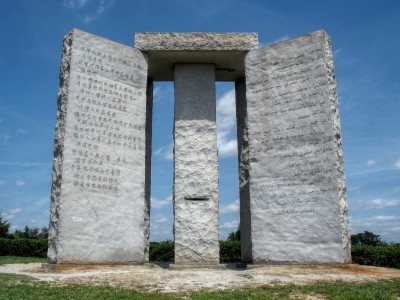The Taos Hum
In the small town of Taos, New Mexico, there is a certain
buzz often heard on the horizon that can be compared to the sound of a distant
diesel engine. Although it can be heard by the naked ear, various sound
detection devices are not able to pick it up. This is known as the Taos Hum and
up to this day, no one still knows how this sound is being created.
Oak Island Money Pit
Throughout history, we’ve never ceased to be enamoured with tales
of buried treasure, secret inscriptions, and booby traps. But one of the most
enduring treasure mysteries of all time comes from a tiny island off the coast
of Nova Scotia in eastern Canada.
Oak Island is the home of what is informally known as the “Money
Pit,” an incredibly deep hole of incredibly elaborate construction discovered
in 1795.
Over two centuries of excavation have unearthed no treasure thus
far, but what has been discovered is arguably just as fascinating. Underneath
the surface of the pit are a series of wooden platforms, and even deeper,
flooding mechanisms formed from multiple underground canals leading to water.
Georgia Guidestones
Also
identified as the American version of Stonehenge, the Georgia Guidestones
located in Elbert County are shrouded in mystery, although they were erected
only in 1979. Written on the walls are 10 “new commandments” written in
English, Swahili, Hindi, Hebrew, Arabic, China, Russia, and Spanish although no
one is sure why or for whom they were meant.
ICELAND'S VOLCANO
Bardarbunga created a 32 square
mile lava field, which is the largest in Iceland since the Laki eruption in
1783, and the Icelandic Met Office says it is “probably the third largest lava
field on Earth” since 1783. The
gases released by the volcano have affected all of Iceland at one point or
another, the first time that has happened in 150 years. The Met Office says the
amount of sulfur released by this volcano may have exceeded that of any volcano
on Earth of this particular type.
SIBERIAN SINKHOLES
A 115-foot hole was discovered in
Siberia's Yamal peninsula — a name that means "end of the world" in
the language of the area's indigenous inhabitants — after an unexplained
explosion in July. Two other mysterious sinkholes popped up in Russia's north
shortly after. Scientists believe gas
explosions beneath the surface caused
the sinkholes, but they haven't been able to confirm that theory.
In
November, a team of scientists, a medic and a professional climber plunged into
the sinkhole to learn more about it, but the cause of the deep holes is still
unknown.




